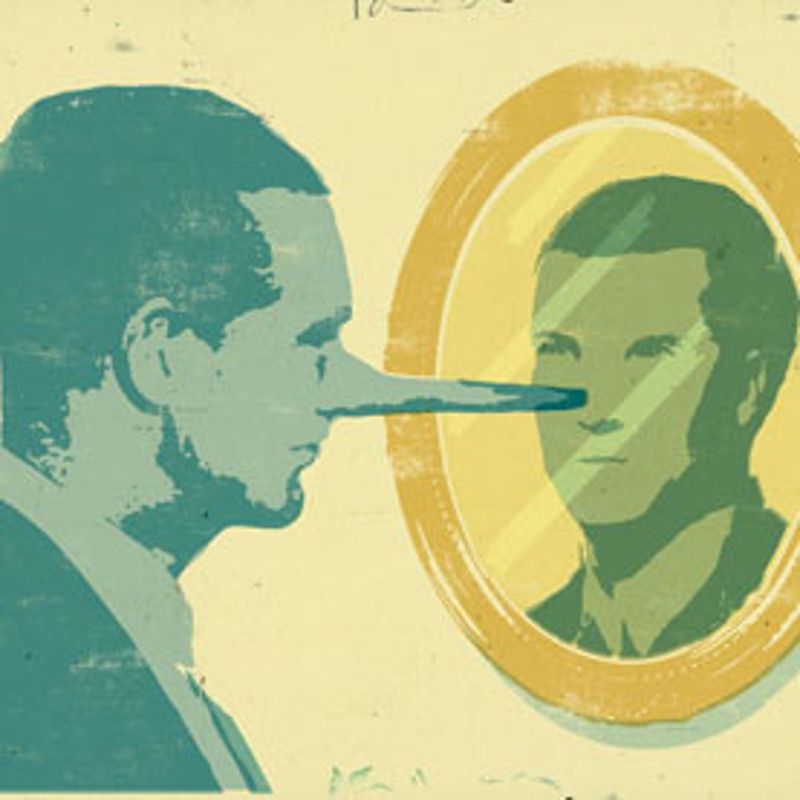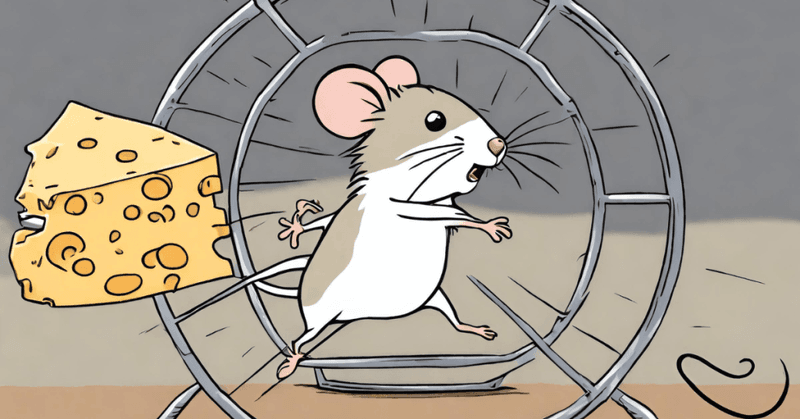Are You Accidentally Cheating Yourself? 15 Hidden Dangers Of Self-Deception
In our quest for personal growth and happiness, we often overlook the unconscious habits that sabotage our success. Self-deception is a sneaky adversary, convincing us that we’re on the right path when, in fact, we’re unknowingly holding ourselves back.
This introspective exploration delves into the hidden dangers of self-deception, revealing how these subtle lies keep us stuck. From believing we’re just being patient to shrinking our dreams to avoid disappointment, these 15 insights will unwrap the truths we often hide from ourselves.
Each section provides a unique lens, encouraging a deeper understanding and sparking meaningful change.
1. Convincing yourself you’re “just being patient” when you’re really avoiding action

Have you ever told yourself that patience is a virtue while secretly sidestepping action? The allure of waiting for the ‘perfect moment’ can trap us in a cycle of procrastination. We claim patience, but often it’s fear masquerading as calm endurance.
True patience involves readiness to seize opportunities when they arise, not an excuse to delay decisions. Reflect on whether your patience is genuine or a comfortable cushion against the discomfort of progress. Embrace action, even if it’s imperfect, to break free from this mental standstill. Waiting is not always the path of wisdom; sometimes, it’s the mirage of safety.
2. Telling yourself they’ll change if you wait long enough

Hoping someone will change over time can be a comforting thought, but it often leads to endless waiting. When you base your expectations on potential rather than reality, you entangle yourself in a web of wishful thinking.
It’s important to recognize that change must come from within, not from external pressure or time. Accepting someone as they are, rather than what you hope they’ll become, allows for genuine relationships. By freeing yourself from unrealistic expectations, you open the door to more authentic connections and personal happiness.
3. Thinking busy means productive

In today’s fast-paced world, busyness is often mistaken for productivity. However, filling your schedule with tasks can distract from meaningful achievements. The noise of constant activity may drown out the signals of true progress.
Understanding the difference between movement and accomplishment is key. Prioritizing tasks that align with your goals ensures that your efforts lead to tangible success. Take a moment to assess whether your busyness is serving your ambitions or merely serving as a distraction from them.
4. Saying you don’t care—when you clearly do

It’s a common defense to claim indifference as a shield against vulnerability. Saying “I don’t care” can feel like a protective barrier when emotions run deep. Yet this facade often hides a wellspring of genuine concern and passion.
Acknowledging your feelings doesn’t make you weak; it reveals your authentic self. Embracing your emotions is a courageous step toward self-awareness and deeper connections. Don’t let the fear of vulnerability cheat you out of the richness of genuine experiences.
5. Blaming others instead of facing your fear

Blaming others is an easy escape from facing our own fears and insecurities. It’s simpler to project our frustrations than to confront the uncomfortable truths about ourselves. This habit of deflection diverts attention from personal growth.
By taking ownership of our fears, we empower ourselves to change. Reflecting on the roots of our discomfort, rather than faulting others, opens the door to self-improvement and resilience. Accept responsibility for your emotions and actions, and see how it transforms your perspective and relationships.
6. Minimizing things that deeply affect you

How often do you downplay the events that truly impact you? Minimizing your feelings is a subtle form of self-deception that can numb your emotional responses over time. This habit creates a disconnect between your true self and the persona you project.
Acknowledging the depth of your feelings is essential for genuine healing and growth. By validating your emotions, you create space for authentic experiences and connections. Allow yourself the grace to feel deeply, without fear of judgment or dismissal.
7. Staying in the wrong job because it’s familiar

Comfort can be a double-edged sword, especially in careers. Remaining in a job that no longer fulfills you might bring temporary security, but it often stifles personal growth and satisfaction. Familiarity should not be mistaken for fulfillment.
Assess whether your job aligns with your values and aspirations. If not, consider exploring new opportunities that challenge and inspire you. Stepping into the unknown can be daunting, yet it often leads to discoveries that enrich your life.
8. Believing you’re “fine” without checking in emotionally

Claiming you’re “fine” is a phrase we often use to avoid deeper introspection. It’s easy to fall into the trap of ignoring emotional check-ins, but this can lead to unaddressed issues festering beneath the surface.
Regular emotional check-ins are vital for mental well-being and authenticity. Take time to explore your feelings, without judgment, to truly understand your emotional landscape. This practice fosters resilience and a more profound connection with yourself and others.
9. Assuming your worth depends on others’ approval

Seeking validation from others can become an unending quest that detracts from your self-worth. Believing your value hinges on external approval creates a fragile foundation for your self-esteem.
True confidence comes from recognizing your intrinsic worth, independent of outside opinions. Embrace your uniqueness and cultivate self-belief, allowing you to thrive authentically. By valuing yourself first, you can build a more resilient and fulfilling life.
10. Telling yourself now isn’t the right time—every time

The illusion of the “right time” often becomes a perpetual excuse for inaction. Telling yourself that the stars must align perfectly can lead to endless procrastination. Instead of waiting for an ideal moment, seize opportunities as they arise.
Challenge the notion that timing must be perfect to move forward. By taking action today, you can break free from the cycle of delay and open the door to new possibilities. The journey of growth begins in the present, not an elusive future.
11. Letting self-doubt disguise itself as realism

Self-doubt can cleverly mask itself as realism, convincing you that your dreams are unattainable. While caution is wise, paralyzing skepticism can hinder progress.
Distinguishing between genuine caution and self-sabotaging doubt is crucial for personal development. Trust in your abilities and embrace challenges with an open mind. By recognizing self-doubt as an imposter, you pave the way for success and self-discovery.
12. Saying it’s too late to try something new

The belief that age or circumstances deem it too late to pursue new interests is a common misconception. This mindset limits potential and stifles growth.
Regardless of age, the joy of learning and exploration is timeless. Embrace new experiences with an open heart, and discover the endless possibilities that await. It’s never too late to nurture curiosity and expand your horizons.
13. Believing you need to earn rest

The notion that rest must be earned is a pervasive belief in our hustle-driven culture. This mindset often leads to burnout and diminishes well-being.
Rest is a fundamental human need, not a reward for overexertion. Prioritize rest as an essential component of your routine, allowing for rejuvenation and balance. By honoring your need for rest, you enhance your ability to thrive in all areas of life.
14. Pretending toxic relationships are “just complicated”

Describing toxic relationships as “just complicated” can be a way to avoid confronting deeper issues. This self-deception traps you in unhealthy dynamics that sap your energy and happiness.
Honesty with yourself about the nature of your relationships is crucial for well-being. Recognize the signs of toxicity and make choices that prioritize your mental and emotional health. Leaving behind harmful connections opens the path to more fulfilling and supportive relationships.
15. Shrinking your dreams so you won’t be disappointed

Fear of disappointment can lead you to diminish your aspirations, convincing yourself that smaller dreams are more realistic. This self-limiting belief narrows your potential and dims your passion.
Embrace the courage to dream boldly, allowing yourself to envision the life you truly desire. Even if the path involves setbacks, pursuing your dreams brings fulfillment and joy. Nurture your ambitions, and watch as they transform into reality.







